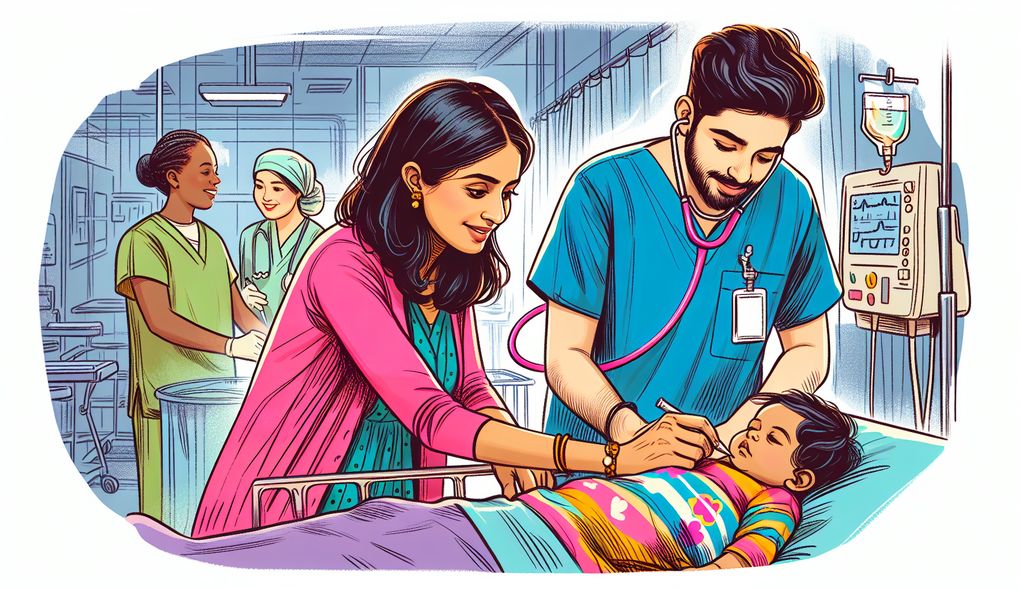Tell us about a time when you had to advocate for a patient's needs in a medical team setting.
SENIOR LEVEL

Sample answer to the question:
I can recall a situation when I had to advocate for a patient's needs in a medical team setting. I was working in the Pediatric Intensive Care Unit (PICU), and we had a young patient with a complex medical condition. The team was considering a treatment plan that was not aligned with the patient's best interests. I knew it was crucial to speak up and advocate for the patient. I gathered relevant information about the patient's condition, consulted with other specialists, and presented a comprehensive case to the team. I emphasized the risks and benefits of alternative treatment options and highlighted the importance of considering the patient's long-term well-being. My efforts paid off as the team reconsidered their initial plan and ultimately agreed on a more suitable approach for the patient.
Here is a more solid answer:
In my role as a Pediatric Critical Care Specialist, I had a valuable opportunity to advocate for a patient's needs in a complex medical team setting. There was a young patient in the Pediatric Intensive Care Unit who required a delicate and individualized approach due to multiple medical conditions. The team initially suggested a treatment plan that I believed would not address the patient's specific needs. Recognizing the importance of collaboration, I brought together the different specialists involved in the case to discuss the patient's situation in detail. I actively listened to their perspectives and shared my concerns, providing evidence-based research to support my arguments. I emphasized the long-term implications of the proposed treatment plan and proposed alternative options that align better with the patient's individual circumstances. Through open and respectful communication, I was able to influence the team's decision, and we ultimately arrived at a more tailored treatment plan that prioritized the patient's well-being.
Why is this a more solid answer?
The solid answer provided more specific details about the candidate's leadership and collaboration skills by highlighting their ability to bring together different specialists and facilitate open discussions. It also showcased their excellent communication and interpersonal skills by describing active listening, evidence-based arguments, and the impact of their advocacy on the team's decision-making. However, the answer could be further improved by incorporating examples of the candidate's ability to handle stressful and complex situations with compassion and professionalism.
An example of a exceptional answer:
Let me share with you an exceptional example of when I advocated for a patient's needs in a medical team setting. During my tenure in the Pediatric Intensive Care Unit, there was a critically ill child with a rare condition that required a highly specialized treatment approach. The medical team initially planned to follow a standard treatment protocol, but I recognized that it wouldn't address the unique challenges of this patient. With the aim of providing the best care possible, I championed the patient's needs by conducting an extensive literature review and consulting with renowned experts in the field. Armed with this knowledge, I brought my concerns to the team and presented a strong case for a personalized treatment plan. I fostered collaborative discussions, actively engaging my colleagues and encouraging diverse expertise. Throughout the process, I remained empathetic and sensitive to the emotional toll on the patient's family, ensuring clear and compassionate communication. Eventually, we reached a consensus, and the patient received an individualized care plan that led to a remarkable recovery.
Why is this an exceptional answer?
The exceptional answer demonstrated the candidate's exceptional leadership and collaboration skills by showcasing their initiative to conduct an extensive literature review and consult with renowned experts to support their advocacy efforts for the patient. It also highlighted the candidate's ability to handle stressful and complex situations with compassion and professionalism by emphasizing their empathetic and sensitive communication with the patient's family. The answer stood out by describing the remarkable outcome of the patient's recovery, showcasing the candidate's ability to achieve tangible results through their advocacy.
How to prepare for this question:
- Reflect on past experiences where you had to advocate for a patient's needs in a medical team setting.
- Identify specific examples that highlight your leadership, collaboration, and communication skills.
- Familiarize yourself with current research and evidence-based practices related to pediatric critical care.
- Practice effectively communicating your concerns and supporting evidence in a clear and concise manner.
- Consider the emotional impact on the patient and their family when advocating for their needs.
- Highlight the positive outcomes achieved through your advocacy efforts.
What are interviewers evaluating with this question?
- Ability to lead and collaborate with a multidisciplinary medical team
- Excellent communication and interpersonal skills

